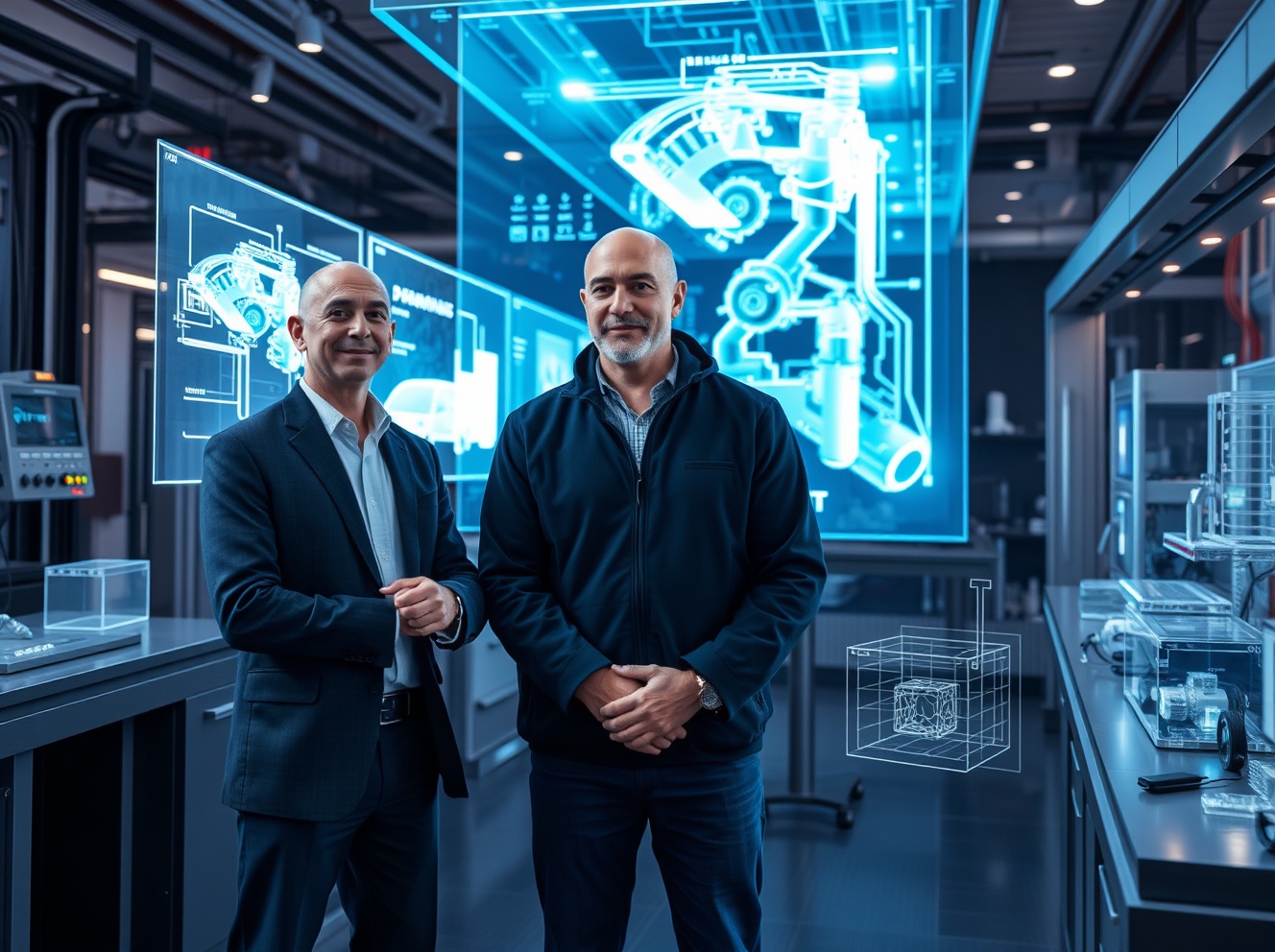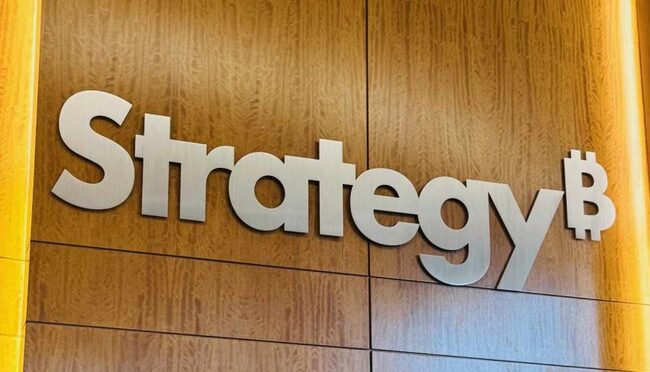Revolutionary: Jeff Bezos Returns as Co-CEO of $6.2 Billion AI Startup Project Prometheus

BitcoinWorld
Revolutionary: Jeff Bezos Returns as Co-CEO of $6.2 Billion AI Startup Project Prometheus
In a stunning development that’s shaking the tech world, Amazon founder Jeff Bezos is making his dramatic return to hands-on leadership as co-CEO of Project Prometheus, a groundbreaking AI startup that just secured $6.2 billion in funding. This marks Bezos’s first operational role since stepping down from Amazon in 2021, signaling his serious commitment to advancing artificial intelligence technology.
What is Project Prometheus Building?
Project Prometheus represents a massive bet on practical AI applications for real-world industries. The startup is focused on developing AI products specifically for engineering and manufacturing sectors, targeting fields like computers, aerospace, and automobiles. According to their LinkedIn page, the company describes its mission as “AI for the physical economy” – a clear differentiation from the current wave of consumer-focused AI tools.
Jeff Bezos Returns to Operational Leadership
Bezos’s decision to take on co-CEO duties demonstrates his personal commitment to this venture. Since leaving Amazon’s day-to-day operations in 2021, the billionaire has been largely focused on his space company Blue Origin and philanthropic efforts. His return to an operational role suggests he sees extraordinary potential in Project Prometheus’s vision for transforming physical industries through artificial intelligence.
Key Leadership Team
| Name | Role | Background |
|---|---|---|
| Jeff Bezos | Co-CEO | Amazon Founder, Blue Origin |
| Vik Bajaj | Co-CEO | Former Google Life Sciences Lead, Verily Co-founder |
Massive $6.2 Billion Funding Round
The startup’s $6.2 billion funding represents one of the largest initial raises in AI history. This substantial war chest positions Project Prometheus to compete directly with established tech giants and other well-funded AI startups. The funding will likely be allocated across several key areas:
- Research and development for engineering AI systems
- Hiring top AI talent from leading companies
- Computing infrastructure and GPU resources
- Partnership development with manufacturing companies
Engineering AI: The Next Frontier
Project Prometheus is targeting what many consider the next major application area for artificial intelligence. While current AI systems excel at digital tasks like content generation and data analysis, applying AI to physical engineering processes presents unique challenges and opportunities. The company’s work reportedly resembles that of Periodic Labs, which focuses on simulating the physical world to train AI models for scientific research acceleration.
All-Star Team from Tech Giants
The startup has already assembled an impressive team of approximately 100 staff members, including researchers recruited from leading AI organizations like Meta, OpenAI, and Google DeepMind. This talent acquisition strategy demonstrates the project’s credibility and appeal within the AI research community.
Notable Recruitment Sources
- Meta AI Research Division
- OpenAI Research Teams
- Google DeepMind Scientists
- Top Engineering Talent
Vik Bajaj’s Impressive Track Record
Bezos’s co-CEO brings substantial credentials to the venture. Vik Bajaj previously led and co-founded Google’s life sciences division and was instrumental in creating Verily, Alphabet’s biotech startup. His experience bridging technology and physical sciences makes him uniquely qualified to lead an AI company focused on engineering applications. Bajaj recently left Foresite Capital, where he co-founded Foresite Labs, to dedicate himself fully to Project Prometheus.
What This Means for the AI Industry
The emergence of Project Prometheus with Bezos’s direct involvement signals several important trends in the AI landscape. The massive funding and high-profile leadership suggest that investors see enormous potential in applying AI to traditional industries. This could accelerate the transformation of manufacturing, engineering, and physical product development through artificial intelligence.
Challenges and Opportunities Ahead
While the startup has impressive backing and leadership, it faces significant challenges in delivering on its ambitious vision. Applying AI to physical world problems requires solving complex issues around simulation accuracy, real-world testing, and integration with existing industrial systems. However, the potential rewards are equally substantial – successful implementation could revolutionize how we design and manufacture everything from cars to computer chips.
FAQs
Who is Jeff Bezos?
Jeff Bezos is the founder of Amazon and one of the world’s wealthiest individuals. He served as Amazon’s CEO until 2021 and now focuses on Blue Origin and other ventures.
What is Project Prometheus?
Project Prometheus is a new AI startup focused on developing artificial intelligence systems for engineering and manufacturing applications across computers, aerospace, and automobiles.
Who is Vik Bajaj?
Vik Bajaj is the co-CEO of Project Prometheus and previously led Google‘s life sciences division. He co-founded Verily and Foresite Labs.
What companies are involved in this project?
The startup has recruited researchers from major AI companies including Meta, OpenAI, and Google DeepMind.
Conclusion
Jeff Bezos’s return to operational leadership through Project Prometheus represents a watershed moment for the AI industry. With $6.2 billion in funding, an all-star team, and a clear focus on transforming physical industries, this venture has the potential to redefine how artificial intelligence impacts the real world. As Bezos and Bajaj combine their expertise in technology and physical sciences, they’re positioned to tackle one of AI’s most challenging and rewarding frontiers.
To learn more about the latest AI startup trends, explore our article on key developments shaping artificial intelligence features and institutional adoption.
This post Revolutionary: Jeff Bezos Returns as Co-CEO of $6.2 Billion AI Startup Project Prometheus first appeared on BitcoinWorld.
You May Also Like

Wormhole launches reserve tying protocol revenue to token

CME Group to launch options on XRP and SOL futures

Michael Saylor’s Strategy Adds $836M in Bitcoin Despite Market Volatility
Highlights: Michael Saylor’s Strategy added $836M in Bitcoin, extending its streak of acquisitions. Strategy now holds 649,870 BTC, valued at $48.37 billion at an average price of $74,433. The company raised funds for the purchase through preferred stock issuance, avoiding common share sales. The prominent corporate Bitcoin holder, Strategy, made another major acquisition last week. The company added 8,178 more BTC to its collection for $835.6 million at an average price of $102,171 per coin. The total Bitcoin holdings of the company grew to 649,870 BTC, valued at $48.37 billion, for an average price of $74,433 per coin following this latest purchase. This acquisition happened at a time when the cryptocurrency market was undergoing significant volatility. The price of Bitcoin has recently declined from highs of $107,000 to $93,000. As of this writing, BTC is trading around $93,619, down by almost 1% over the last 24 hours. Despite these fluctuations, Strategy has continued, showing its confidence in Bitcoin as a store of value. Strategy used its preferred stock issue to fund this bitcoin purchase instead of relying on the sale of common shares. The company raised $704 million through its STRE (Steam) offering and another 136.1 million from its sales of STRC, STRF, and STRK preferred stocks. This strategy gave the firm the ability to avoid diluting current shareholders through the issuance of more common stock, which would have been detrimental to the current performance of MSTR stock. Strategy has acquired 8,178 BTC for ~$835.6 million at ~$102,171 per bitcoin and has achieved BTC Yield of 27.8% YTD 2025. As of 11/16/2025, we hodl 649,870 $BTC acquired for ~$48.37 billion at ~$74,433 per bitcoin. $MSTR $STRC $STRD $STRE $STRF $STRK https://t.co/HI1TeYOvQ9 — Michael Saylor (@saylor) November 17, 2025 Strategy Remains Confident Amid Stock Price Pressure Strategy adding $836M in Bitcoin coincides with the sustained pressure on the company’s stock price. MSTR stock has declined sharply and has lost more than 30% of its value over recent months. Currently, MSTR stock is trading at around $195, a drop of 1.45% since the previous close. In addition, the purchase occurred as the firm saw its market Net Asset Value (mNAV) decline over the last few months. Its mNAV has plummeted to 0.94 compared to the year-to-date high of more than 3. However, the metric has recovered to 1.18 as of this writing. Source: Strategy However, Michael Saylor and his team have reaffirmed their commitment to Bitcoin. The company has been purchasing Bitcoin on a daily basis regardless of the market fluctuations. Recently, Saylor refuted claims that the company was selling its Bitcoin during the price drop, noting that the company has been steadily buying additional BTC. Bitcoin Strategy Continues Despite Market Skepticism Peter Schiff, a renowned Bitcoin skeptic, recently raised questions about the strategy used by Michael Saylor. Schiff denounced the financial framework of Strategy, labeling it a fraud. According to him, the company will find itself in financial instability due to its overdependence on high-yield preferred shares. As Schiff points out, the business model of the company has the potential to create a death spiral in case investors lose their confidence and offload their holdings within the preferred shares. MSTR’s business model relies on income-oriented funds buying its “high-yield” preferred shares. But those published yields will never actually be paid. Once fund managers realize this they’ll dump the preferreds & $MSTR won’t be able to issue any more, setting off a death spiral. — Peter Schiff (@PeterSchiff) November 16, 2025 Even with these criticisms, Strategy stands firm in its belief that Bitcoin is a valuable asset. The firm has amassed Bitcoin over the years, including in both bull and bear market cycles. eToro Platform Best Crypto Exchange Over 90 top cryptos to trade Regulated by top-tier entities User-friendly trading app 30+ million users 9.9 Visit eToro eToro is a multi-asset investment platform. The value of your investments may go up or down. Your capital is at risk. Don’t invest unless you’re prepared to lose all the money you invest. This is a high-risk investment, and you should not expect to be protected if something goes wrong.